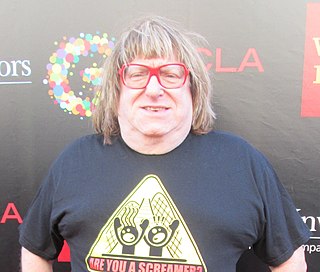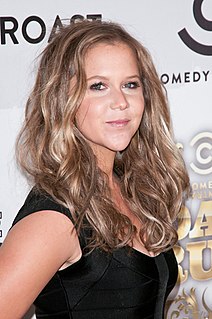A Quote by Paul Feig
A lot of comedies fall apart because they just go from joke to joke, and the characters are all sort of being crazy off on their own.
Related Quotes
People try to put ownership on things: 'That's mine, that's my joke.' No such thing. Like if you tripped or stumbled and people go, 'Oh, that's Charlie Chaplin.' You know what I mean? You can't own a joke. You can be the guy that tells it the best, but you can't own a joke. Nowhere can you own a laugh.
I have become a giant fan of the testing process, especially with a comedy. I mean, they tell you what's funny. It's almost tailor-made for people who shoot the way we shoot, trying a million different options and versions of things. Because the audience doesn't laugh at a joke, we put in another joke. If they don't laugh at the next joke, we put in another joke. You just keep doing them and you can get the movie to the point where every joke is funny, if you have enough options in the can.
I had an awful joke about Auschwitz I drove everybody crazy with that joke. But that joke makes me feel good. You know what "cuit" means? When something is cooked. It's a joke like that: "What are the birds doing when they fly over Auschwitz? 'Cuit! Cuit!'" It's awful, but it's desacralizing. For me, it's good.
Some street jokes are just timeless. There's an old street joke about comedians. The joke is that a beautiful girl comes up to a comedian at the end of the night and says, "I saw your show tonight, and I just loved it. I want to go home with you, and I'll do anything you want." And the comedian says, "Were you at the 7 or the 9?" That's just a perfect joke, because it points out how egomaniacal and obsessive comedians are. Even though I'm not waiting for a groupie, I can completely understand it. It just defines how comedians are driven.



































